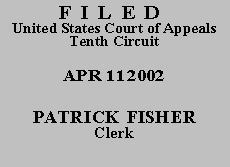

| LOUIE WESLEY CRANDALL,
Petitioner - Appellant, v. MICHAEL BOWERSOX; ATTORNEY GENERAL OF THE STATE OF KANSAS, Respondents - Appellees. |
|
Petitioner Louie Wesley Crandall seeks a certificate of appealability (COA) to pursue his appeal of the district court's denial of his petition for a writ of habeas corpus filed pursuant to 28 U.S.C. § 2254. Determining that Mr. Crandall has not met the statutory requirements, we deny his application and dismiss the appeal.
To be entitled to a COA, Mr. Crandall must make "a substantial showing of the denial of a constitutional right." 28 U.S.C. § 2253(c)(2). He can make this showing by establishing that "reasonable jurists could debate whether (or, for that matter, agree that) the petition should have been resolved in a different manner or that the issues presented were adequate to deserve encouragement to proceed further." Slack v. McDaniel, 529 U.S. 473, 484 (2000) (quotation omitted).
This is a continuation of Mr. Crandall's second habeas petition. The district court originally dismissed the petition for failure to exhaust his state-court remedies. Mr. Crandall sought to appeal that dismissal. However, this court denied a COA and dismissed the appeal. See Crandall v. Bowersox, No. 99-3370, 2000 WL 300209, at **1 (10th Cir. Mar. 23, 2000).
Mr. Crandall then filed a motion in district court seeking to have the district court recall the mandate, grant habeas relief, give him a statement of extradition from his state criminal case, and give him financial assistance so he could continue this case in the United States Supreme Court. The district court denied the motion and Mr. Crandall appeals.
Mr. Crandall has failed to meet the standards established in § 2254(d).
Consequently, we DENY Mr. Crandall's application for a COA and DISMISS
this appeal. Mr. Crandall's motion for leave to proceed in forma pauperis is
GRANTED.
Entered for the Court
Circuit Judge
*. This order and judgment is not binding precedent, except under the doctrines of law of the case, res judicata, and collateral estoppel. The court generally disfavors the citation of orders and judgments; nevertheless, an order and judgment may be cited under the terms and conditions of 10th Cir. R. 36.3.